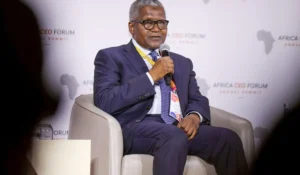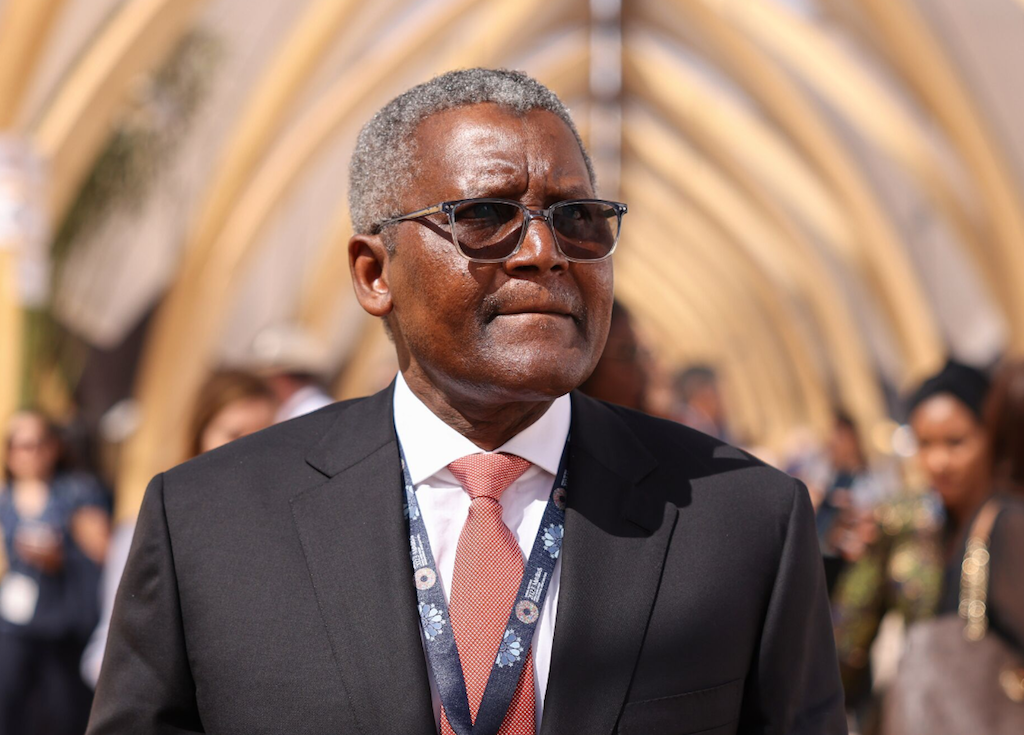Aliko Dangote, head of one of Africa’s largest private enterprises, advocated for a full end to Nigeria’s petrol subsidy during a high-profile interview in New York. He argued the subsidy distorts demand, drains government resources, and shields inefficiencies in a sector vital to national mobility.
He described the subsidy mechanism as “highly sensitive”—where price caps encourage inflated demand, resulting in costs far exceeding the government’s intended burden. Dangote positioned his newly operational refinery as a solution that will bring transparency and accountability to fuel consumption.
Refinery as an Instrument of Reform
Dangote’s megarefinery in Lekki, with its 650,000 barrels-per-day capacity, provides the capacity needed to internally meet most of Nigeria’s fuel demand. The facility enables precise data gathering through a planned tracking system on trucks and ships—ensuring actual petrol flows are logged and priced appropriately.
By accurately measuring Nigeria’s daily petrol consumption, the refinery helps eliminate reliance on unclear estimates, tightens inventory control, and reduces fiscal leakages through more disciplined supply oversight.

Fiscal Benefits and Forex Relief
Photonically, Dangote asserted that fuel subsidy accounts consume roughly 40% of Nigeria’s foreign exchange. He argued that local refining and subsidy elimination could dramatically reduce import dependence, thereby relieving forex demand and helping stabilize the naira.
In his view, this move would reassure markets, bolster currency resilience, and curb inflationary impulses tied to petro-dollar outflows.
Why Now? Strategic Timing Behind the Call
Dangote emphasized the timing aligns with the refinery’s partial commissioning and incremental ramp-up to capacity. He said that once production reaches stable output, Nigeria can replace costly imports, accurately measure consumption, and eliminate opaque subsidy mechanisms—creating efficiency and fiscal relief simultaneously.
Structural Implications of Subsidy Removal
Ending subsidy presents both financial and social implications. Dangote acknowledged that government policy, not private enterprise, ultimately dictates subsidy frameworks. However, he believes that refined fuel produced domestically could still generate fair returns without relying on cross-subsidies or excessive public spending.
He noted that countries globally have abolished such subsidies, and Nigeria should follow suit to unlock economic clarity and avoid distortionary pricing policies.
Public Debate: Divergent Perspectives Emerge
Not all stakeholders agreed with Dangote’s position. One former presidential aide warned that fuel remains essential to Nigeria’s economy—calling it “economic oxygen” and arguing that immediate subsidy removal would hit the poorest hardest. He recommended reforms linked to upstream refining capacity before eliminating price support altogether.
Others, in public forums, echoed that subsidy-free pricing could be better justified if the revenue saved were invested in infrastructure, education, or healthcare—transforming a recurring subsidy into long-lasting public value.
What Lies Ahead: Preconditions for Success
Dangote’s call rests on several critical assumptions:
-
The refinery must reach sustained operating capacity and reliable crude feedstock.
-
Tracking systems for refined outputs must deliver accurate data across the distribution chain.
-
Government must channel subsidy savings toward development and stabilize the naira.
-
Transparent pricing must prevail at national markups without distortion by marketers.
Potential Outcomes: If Subsidies End
Should subsidy end:
-
The government could eliminate a major line item in fuel spending—estimated at trillions of naira annually.
-
The refinery’s output could supply most domestic needs, making import reliance unnecessary.
-
Realistic pricing would emerge based on tracked consumption and production costs.
-
Scarce forex could be diverted to public services and reserve rebuilding, easing monetary stress.
Key Metrics and Impacts to Monitor
-
Fuel export and local distribution volumes post-tracking implementation
-
Subsidy bill reduction and redirection of savings into capital spending
-
Consumer pump price trends in refined versus imported petrol
-
Movement in naira exchange rate and balance of payments performance
-
Industry response from marketers, unions, and federal agencies
Conclusion: Bold Vision Meets Operational Reality
Aliko Dangote’s public call to eliminate Nigeria’s petrol subsidy reflects both a strategic economic argument and a confidence in domestic refining capacity. With his refinery nearing scale and transparency tools in place, he frames subsidy removal as a necessary, long-term reform.
Balancing subsidy phase-out with consumer impact mitigation, effective governance, and financial discipline could yield substantial fiscal dividends—and catalyse energy sector reform. Whether the government pursues this bold step will determine its credibility in leveraging private-sector infrastructure for public good.







